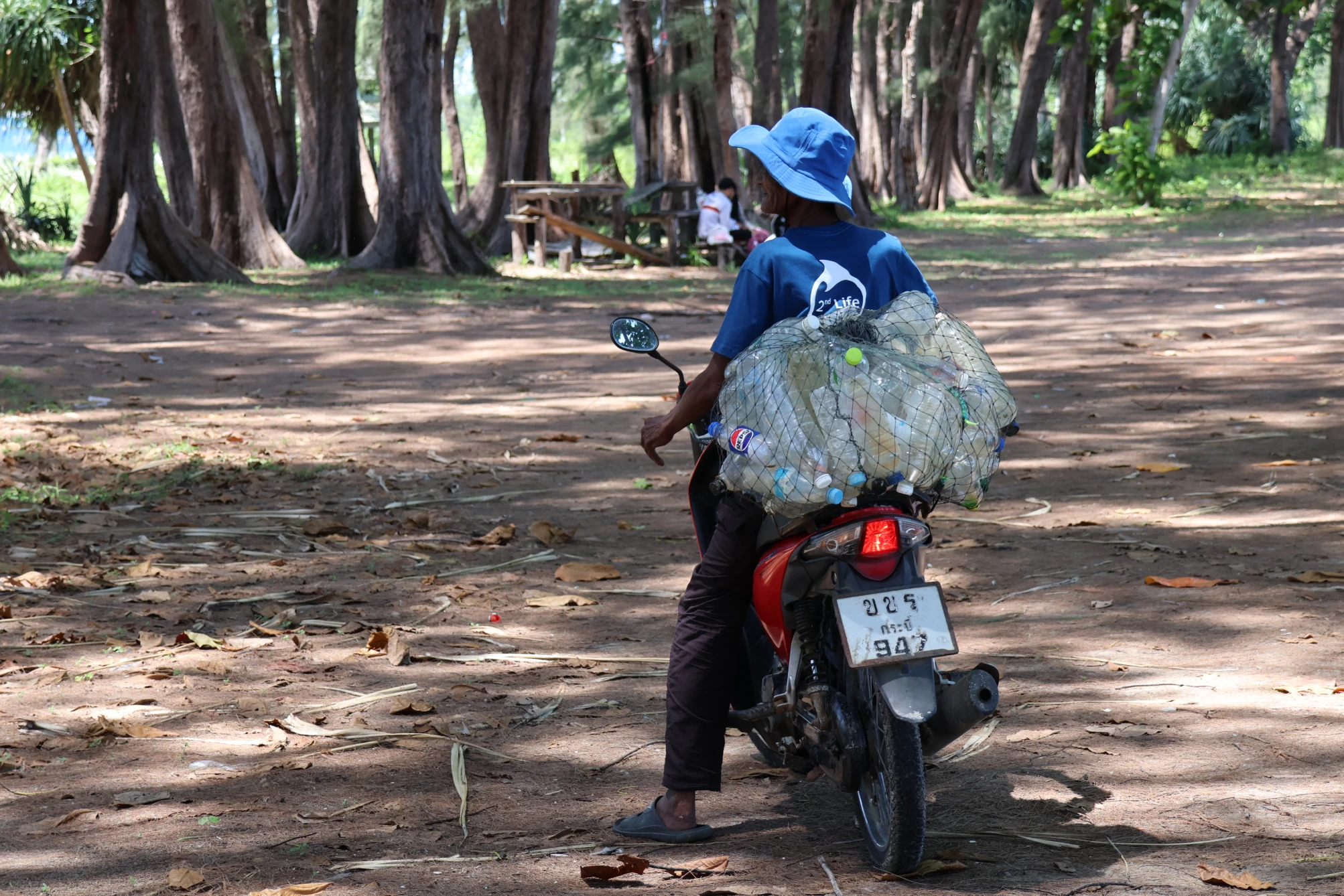Caudalie,
leading one of the world’s largest plastic-prevention initiatives in its category
people from the local community have been positively impacted.
women collectors empowered through the Initiative.
of ocean plastic waste were collected and recycled/processed since 2020 through the Initiative.
elephants’ worth of plastic was prevented from entering the ocean.

Table of content
How did the 100% Ocean Plastic Collect Initiative come about?
In 2019, our founders, Mathilde and Bertrand Thomas, began considering how they could tackle plastic pollution on a larger scale, beyond just their own operations, as it was an issue that had particularly affected them during their three years in Hong Kong. Aware that the cosmetics industry has its part to play in this major issue, they turned to Tristan Lecomte, a social entrepreneur behind Alter Eco and PUR Projet, based in Thailand. After further research, they decided to embark on the journey of plastic waste recovery together.
The 100% Ocean Plastic Collect initiative was founded in 2020. Through this program, we are committed to funding the collection, transport, and recycling of the equivalent plastic amount used for our products at Caudalie.
Since 2020, we have contributed to the collection of 3,120 metric tons of plastic waste along the beaches and coastal areas of Krabi and Trang provinces in Thailand, covering the entirety of our plastic footprint products for five years.
The collected waste is all locally recycled: each year approximately 95% of the plastic waste is directly recycled on-site and transformed into reusable pellets to create new products ready for use in the local Thai market. And the remaining 5%? Even non-recyclable plastics find a second life. They are converted into energy in the form of refuse-derived fuels (RDF), which are substitutes for fossil fuels used in the cement industry and power plants.
Result: zero waste, everything is processed!
Waste transformation isn’t the only positive outcome of the project. The program supports local communities in these areas. To date, the funds we have contributed have supported over 7,000 people, providing revenue and support to waste collectors and their families daily, supporting local recyclers, and contributing to awareness-raising in schools throughout the province.
Today, our commitment doesn’t stop there: our ambition is to expand to other critical countries, such as Indonesia, where we are planning to launch in 2025.
We are the only partner covering 100% of our plastic footprint, and we encourage other companies to join us in this effort!
Do you see the small 100% Plastic Collect logo behind all our products? It means that we collect the same amount of plastic from the environment as the packaging of the product itself. It’s that simple!

How we also work on improving our impact upstream?
Beyond this program to support the improvement of plastic waste collection and sorting in critical countries like Thailand, we also work on reducing the impact of our waste at the source. This mainly involves our packaging eco-design strategy. Since 2019, a small revolution has taken place within our teams at Caudalie with the addition of two packaging engineers. Their daily work is focused on minimizing the environmental impact of our packaging. To do this, we follow the 3Rs principle: Reduce, Recycle, Reuse.
In practice, this translates into the continuous reduction of our packaging weight, an increase in the use of recycled materials, improved recyclability, and the gradual introduction of refills in our product lines.
Key figures at Caudalie:
- -21% of Virgin plastic consumed between 2020 and 2023
- 4x more recycled plastic used by the end of 2023 (compared to 2020)
- 100% of our bottles made with recycled plastic (with an average of 96% recycled plastic per bottle)
- By the end of 2024, 5 refills introduced in our product lines – and we’re just getting started, with more exciting launches coming in 2025!


%20copie%201.svg)

